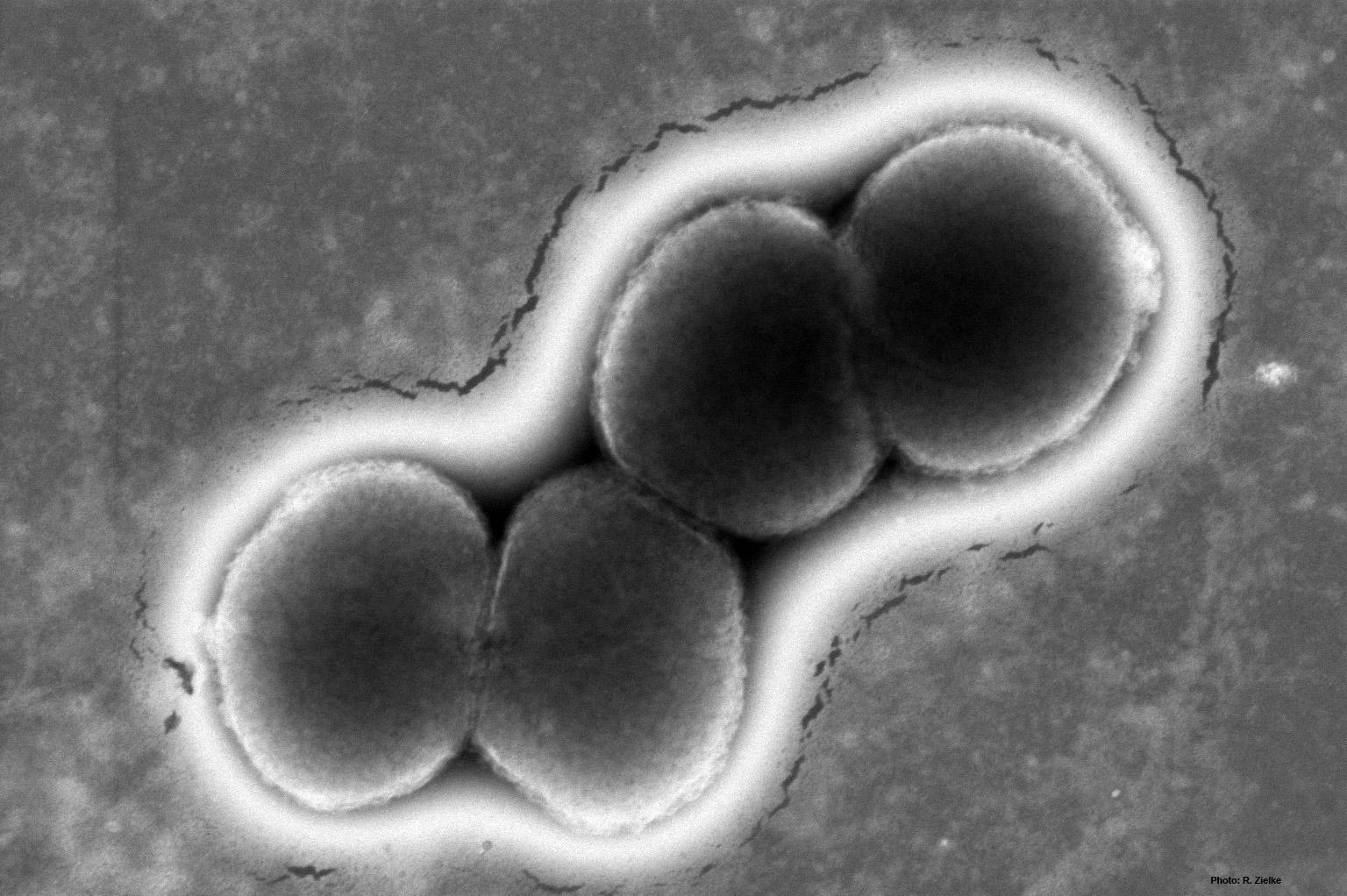
Microscopic image of the bacteria that causes gonorrhea
Aleksandra Sikora / OSU/OHSU College of Pharmacy
Oregon scientists may have found a new way to fight gonorrhea.
Aleksandra Sikora, a researcher with Oregon State University and the Oregon Health and Science University College of Pharmacy, thinks her team has identified a protein that gonorrhea uses to defeat the body's first line of defense.
The hope is scientists may be able to develop a vaccine or antibiotic to disable that protein, allowing the body to re-establish its first line of defense, "This is the first time an animal model has been used to demonstrate a lysozyme inhibitor's role in gonorrhea infection," Sikora said.
"Together, all of our experiments show how important the lysozyme inhibitor is. This is very exciting."
"We desperately need a new vaccine as well as antibiotic targets. So therefore, this protein represents a very attractive target for developing both," she said.
After years of successfully treating the sexually transmitted disease, gonorrhea is becoming increasingly antibiotic resistant.
About 78 million new cases are diagnosed worldwide each year. And if untreated, gonorrhea can lead to infertility and even blindness in babies.
"The infections very often are silent," said Sikora. "Up to 50 percent of infected women don't have symptoms, but those asymptomatic cases can still lead to some very severe consequences for the patient's reproductive health, miscarriage or premature delivery."
Gonorrhea can lead to endometriosis, pelvic inflammatory disease, ectopic pregnancy and infertility. Babies born to infected mothers are at increased risk of blindness.
The findings are published in the latest edition of PLOS Pathogens.

